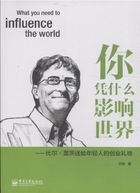Moral unity, as this illustration implies, admits and rewards strenuous ambition; but this ambition must either be for the success of the group, or at least not inconsistent with that.The fullest self-realization will belong to the one who embraces in a passionate self-feeling the aims of the fellowship, and spends his life in fighting for their attainment.
The ideal of moral unity I take to be the mother, as it were, of all social ideals.
It is, then, not my aim to depreciate the self-assertive passions.Ibelieve that they are fierce, inextinguishable, indispensable.Competition and the survival of the fittest |are as righteous as kindness and cooperation, and not necessarily opposed to them: an adequate view will embrace and harmonize these diverse aspects.The point I wish particularly to bring out in this chapter is that the normal self is moulded in primary groups to be a social self whose ambitions are formed by the common thought of the group.
In their crudest form such passions as lust, greed, revenge, the pride of power and the like are not, distinctively, human nature at all, but animal nature, and 90 far as we rise into the spirit of family or neighborhood association we control and subordinate them.They are rendered human only so far as they are brought under the discipline of sympathy, and refined into sentiments, such as love, resentment, and ambition.And in so far as they are thus humanized they become capable of useful function.
Take the greed of gain, for example, the ancient sin of avarice, the old wolf, as Dante says, that gets more prey than all the other beasts.The desire of possession is in itself a good thing, a phase of self-realization and a cause of social improvement.It is immoral or greedy only when it is without adequate control from sympathy, when the self realized is a narrow self.In that case it is a vice of isolation or weak social consciousness, and indicates a state of mind intermediate between the brutal and the fully human or moral, when desire is directed toward social objects梬ealth or power梑ut is not social in its attitude toward others who desire the same objects.Intimate association has the power to allay greed.One will hardly be greedy as against his family or close friends, though very decent people will be so as against almost any one else.Every one must have noticed that after frank association, even of a transient character, with another person, one usually has a sense of kindred with him which makes one ashamed to act greedily at his ,expense.
Those who dwell preponderantly upon the selfish aspect of human nature and flout as sentimentalism the "altruistic" conception of it, make their chief error in failing to see that our self itself is altruistic, that the object of our higher greed is some desired place in the minds of other men, and that through this it is possible to enlist ordinary human nature in the service of ideal aims.The improvement of society does not call for any essential change in human nature, but, chiefly, for a larger and higher application of its familiar impulses.
I know, also, that the most truculent behavior may be exalted into an ideal, like the ferocity of Samuel, when he hewed Agag to pieces before the Lord, or of the orthodox Christian of a former age in the destruction of heretics.In general there is always a morality of opposition, springing from the need of the sympathetic group to assert itself in the struggle for existence.Even at the present day this more or less idealizes destructiveness and deceit in the conflicts of war, if not of commerce.
But such precepts are secondary, not ideals in the same primary and enduring sense that loyalty and kindness are.They shine by reflected light, and get their force mainly from the belief that they express the requirements of the "we" group in combating its enemies.Flourishing at certain stages of development because they are requisite under the prevailing conditions of destructive conflict, they are slowly abandoned or transformed when these conditions change.Mankind at large has no love of them for their own sake, though individuals, classes, or even nations may acquire them as a habit.With the advance of civilization conflict itself is brought more and more under the control of those principles that prevail in primary groups, and, so far as this is the case, conduct which violates such principles ceases to have any ideal value.
To break up the ideal of a moral whole into particular ideals is an artificial process which every thinker would probably carry out in his own way.Perhaps, however, the most salient principles are loyalty, lawfulness, and freedom.
In so far as one identifies himself with a whole, loyalty to that whole is loyalty to himself; it is self-realization, something in which one cannot fail without losing self-respect.Moreover this is a larger self, leading out into a wider and richer life, and appealing, therefore, to enthusiasm and the need of quickening ideals.One is never more human, and as a rule never happier, than when he is sacrificing his narrow and merely private interest to the higher call of the congenial group.And without doubt the natural genesis of this sentiment is in the intimacy of face-to-face cooperation.
It is rather the rule than the exception in the family, and grows up among children and youth so fast as they learn to think and act to common ends.
The team feeling described above illustrates it as well as anything.
Among the ideals inseparable from loyalty are those of truth, service, and kindness, always conceived as due to the intimate group rather than to the world at large.
Truth or good faith toward other members of a fellow:;hip is, so far as I know' a universal human ideal.It does not involve any abstract love of veracity, and is quite consistent with deception toward the outside world, being essentially "truth of intercourse" or fair dealing among intimates.













